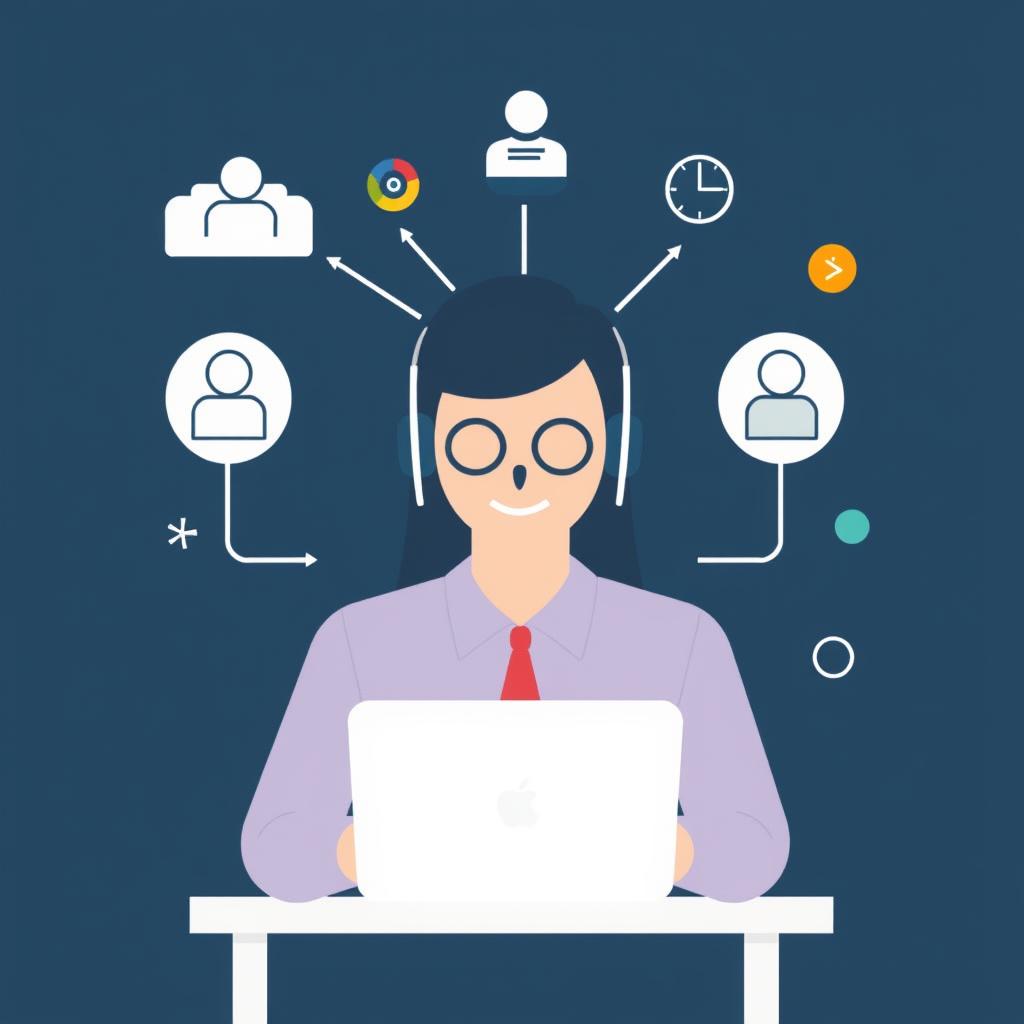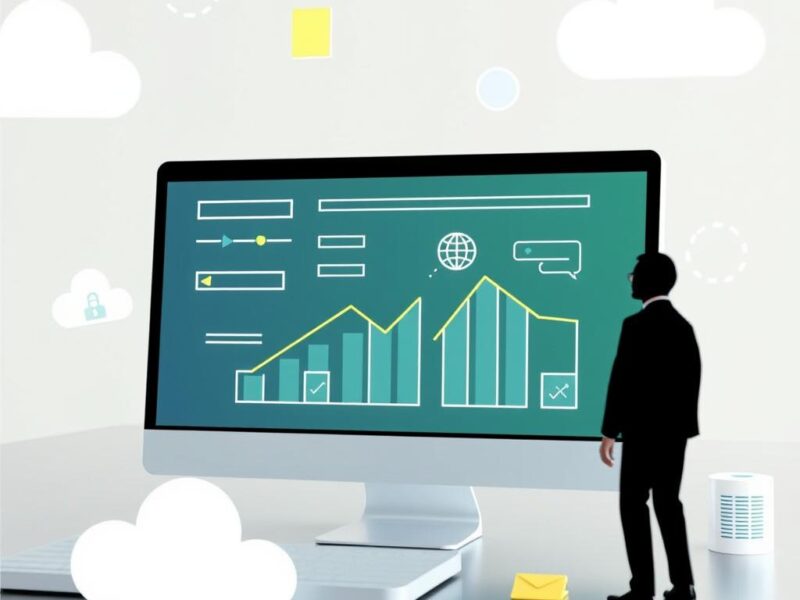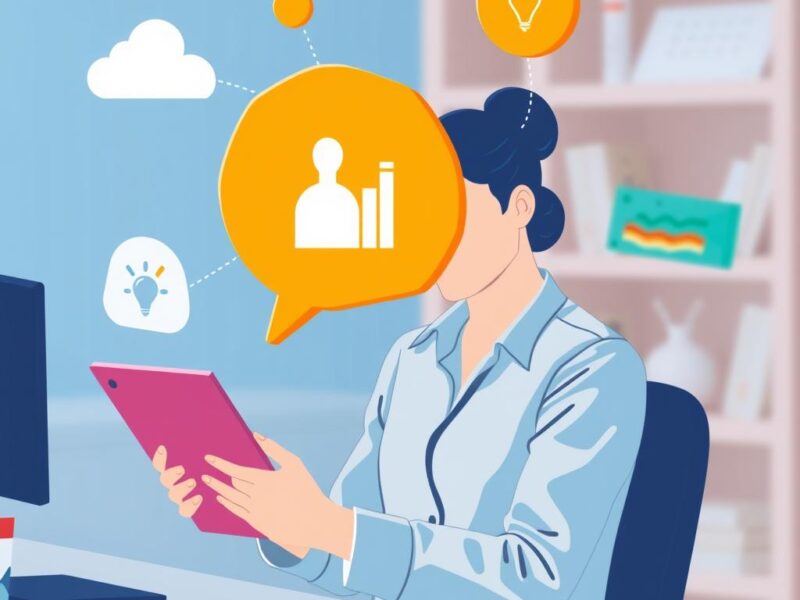In today’s competitive business environment, exceptional customer service can be a key differentiator. Customer Relationship Management (CRM) software plays a critical role in helping businesses provide outstanding customer service. By centralizing customer data, automating support workflows, and enabling personalized communication, CRM systems ensure that every interaction is efficient, consistent, and customer-centric. In this article, we’ll explore how CRM can enhance customer service and drive customer satisfaction.
How CRM Improves Customer Service:
- Instant Access to Customer Data: One of the most significant advantages of CRM software is that it gives customer service teams immediate access to detailed customer information. This includes past interactions, purchase history, preferences, and support tickets. Having all this data at their fingertips enables support representatives to provide faster and more personalized responses. No more delays in looking up information or asking customers to repeat themselves – the CRM makes the customer service process seamless.
- Faster Response Times: CRM systems streamline the entire support process by automating many of the routine tasks. For example, when a customer submits a support request, the CRM can automatically categorize the issue and assign it to the appropriate team member. It can even prioritize cases based on urgency or customer value, ensuring that critical issues are addressed first. By automating ticket routing and management, businesses can reduce response times and ensure faster resolution for customers.
- Omnichannel Support: Today’s customers expect to be able to reach businesses through a variety of channels, from phone and email to social media and live chat. CRM software allows businesses to manage all these interactions from a single platform, ensuring consistency across every touchpoint. Whether a customer reaches out on Twitter, via email, or through a support chat, CRM software helps track and respond to all inquiries from one centralized location, providing a seamless experience.
- Personalized Customer Interactions: CRM systems enable businesses to track individual customer preferences, previous issues, and ongoing conversations. This rich data allows customer service teams to personalize interactions, offering tailored solutions based on the customer’s history. For instance, if a customer has previously contacted support regarding a specific product, the representative can access their history to offer more relevant advice or solutions without asking the customer to explain the situation again.
- Proactive Customer Support: CRM software empowers businesses to take a proactive approach to customer service. By analyzing customer data, businesses can anticipate potential issues before they arise and address them early. For example, if a customer’s subscription is about to expire, the CRM can trigger an automated reminder or offer renewal options in advance. Proactive service helps prevent customer frustration and can increase retention rates by addressing problems before they escalate.
Benefits of CRM-Enhanced Customer Service:
- Increased Customer Satisfaction: Customers expect quick, accurate, and personalized service, and CRM software makes it possible to deliver just that. By streamlining processes, automating responses, and providing better data insights, businesses can meet customer expectations more effectively. Satisfied customers are more likely to become repeat customers and refer others, driving business growth.
- Improved Agent Productivity: CRM systems not only improve customer service but also enhance agent productivity. By automating administrative tasks and providing easy access to customer data, CRM systems allow service reps to focus on problem-solving rather than searching for information. The result is a more efficient team and faster resolutions for customers.
- Better Collaboration Across Teams: In larger organizations, customer service often requires collaboration between multiple teams, such as sales, marketing, and technical support. CRM software fosters cross-departmental collaboration by allowing all teams to access the same customer data and track interactions in real-time. This helps create a more unified approach to solving customer problems and ensures that all team members are on the same page.
- Measurable Performance Metrics: With CRM software, businesses can easily track key performance indicators (KPIs) related to customer service. Metrics like response time, resolution time, customer satisfaction scores, and first-contact resolution can be monitored in real time. This data helps businesses assess their performance, identify areas for improvement, and implement changes to improve customer service quality.
The Bottom Line:
Customer service is one of the most important aspects of building long-term customer loyalty, and CRM software provides the tools necessary to excel in this area. By centralizing customer data, automating routine tasks, and enabling personalized communication, CRM systems empower businesses to deliver exceptional customer service. As customer expectations continue to rise, using CRM to enhance service levels will not only help businesses stay competitive but also build a loyal customer base that keeps coming back.
With CRM software, businesses can not only meet but exceed customer expectations, ensuring a positive service experience that drives satisfaction and retention. Investing in CRM technology for customer service is a step toward creating stronger, lasting relationships with your customers—an investment that pays dividends in customer loyalty and long-term success.



